It's time to unite, fight terrorism
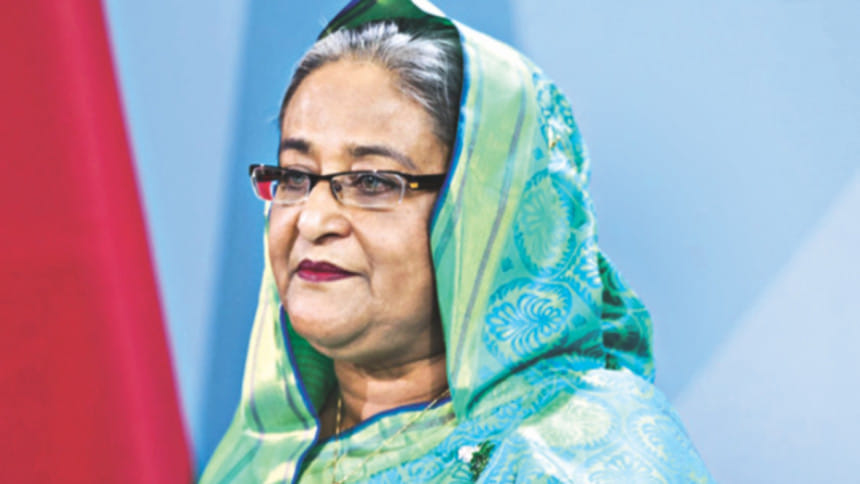
Lauding the Saudi Arabia-led anti-terror alliance, Prime Minister Sheikh Hasina yesterday said it has created an opportunity for the entire Muslim Ummah to get united and fight terrorism and militancy.
“Around 40 countries have already joined the alliance... Bangladesh also joined it," the PM said in reply to queries from lawmakers in parliament.
Hasina, also the leader of the House, reiterated her government's zero tolerance to terrorism and militancy.
"Bangladesh will do whatever is needed to root out terrorism and militancy. I have already conveyed this to the Saudi king, Muslim countries and the OIC [the Organisation of Islamic Cooperation]. We are firmly determined to prevent the recurrence of the incidents [militant acts] which are taking place now,” she asserted.
Referring to her recent visit to Saudi Arabia, the premier said she told the Saudi king that Bangladesh would send troops, if necessary, to protect the two holy mosques in Mecca and Medina.
The PM mentioned that the king thanked her for joining the alliance.
Hasina said she expressed her hope to the king that each and every country of the Muslim Ummah would refrain from interfering in the internal affairs of others.
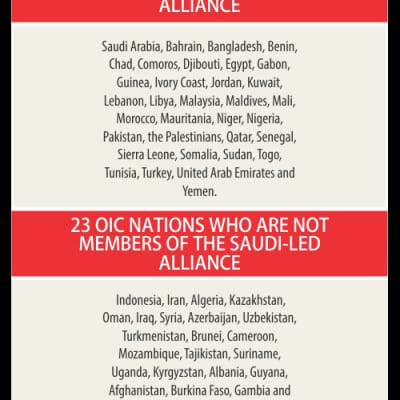
She said her visit to Saudi Arabia has taken the Saudi-Bangladesh ties to new heights.
Hasina hoped the visit would bring dynamism in Bangladesh's relations with the Muslim world and put the bilateral ties between Bangladesh and Saudi Arabia on a strong footing.
Describing Islam as the religion of peace, she said, "I always urge the Muslim Ummah to stand against militancy and terrorism... I also urge this whenever I go to the OIC.
Through this new relation with Saudi Arabia, Bangladesh's importance would increase and its image would brighten further in the Muslim world, Hasina added.
THE ALLIANCE
In mid-December last year, Saudi Arabia announced the formation of an Islamic military alliance of 34 countries, including Gulf states, Egypt and Turkey, to fight terrorism.
“The formation of the Islamic military alliance emanates from the Islamic world's keenness to fight terrorism and be a partner of the world in the fight against this scourge,” said Saudi Deputy Crown Prince Muhammad Bin Salman, also defence minister, at a press conference in Riyadh, reported Saudi Gazette on December 16.
Announcing the formation of the alliance, he said a number of countries, including Syria, Iraq, Egypt, Yemen, Libya, Mali, Nigeria, Pakistan and Afghanistan, have been facing the scourge of terrorism.
It requires very strong efforts to fight terrorism. Undoubtedly, there would be coordination to fight it through this alliance, he added.
The US and some other countries welcomed the formation of the military alliance.
On December 15, a joint statement was issued on formation of the alliance, citing the names of 34 countries.
It said the countries decided to form a military alliance led by the Kingdom of Saudi Arabia to fight terrorism.
"And a joint operations center will be established in the city of Riyadh to coordinate and support military operations to fight terrorism and to develop the necessary programs and mechanisms for supporting these efforts," reads the joint statement available on the website of the Saudi Press Agency.
Appropriate arrangements would be made for coordination with friendly peace-loving nations and international bodies for the sake of supporting international efforts to combat terrorism and ensure peace and security, it adds.
No Shia Muslim-dominated countries, including Iran, have joined the anti-terror alliance.
DEBATE IN BANGLADESH
Bangladesh's joining the alliance triggered a debate in the country, as a number of political leaders and security experts said Bangladesh cannot join such an alliance without Jatiya Sangsad sanction.
Some of them argued that the joining of the Saudi-led alliance went against Bangladesh's foreign policy principle of friendship to all, malice to none.
At a cabinet meeting in January, Public Administration Minister and Awami League General Secretary Syed Ashraful Islam questioned Bangladesh's decision to join the alliance. He said that approval from parliament was necessary before joining such an alliance, according to media reports.
In response, Foreign Minister AH Mahmud Ali said the collation was a pact against terrorism, not a military alliance.
As the debate went on, the foreign minister on June 1 said there was nothing mandatory for the members of the Saudi-led alliance.
"This is not a military alliance, rather a centre for cooperation among member states. Cooperation will be extended voluntarily. Nothing is mandatory," he said.

 For all latest news, follow The Daily Star's Google News channel.
For all latest news, follow The Daily Star's Google News channel. 

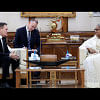

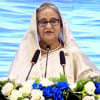
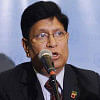



Comments